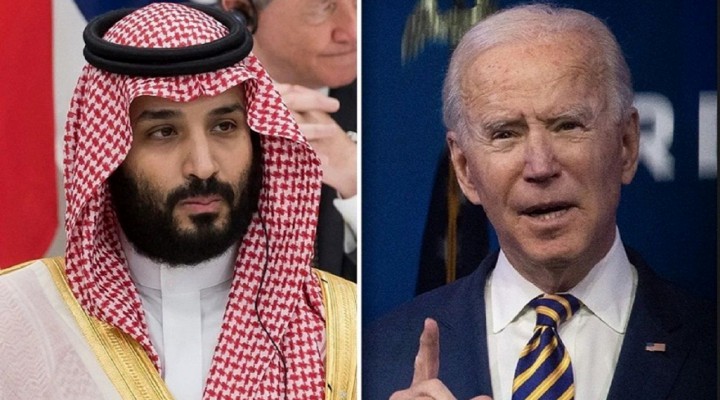‘Re-evaluating’ US-Saudi relations

If the Biden administration halts arms sales to the Gulf states, it will be doing them a favor
The Saudi-US relationship is on the brink of collapse. It could turn from a strategic alliance that lasted more than 80 years into a state of animosity and even confrontation in several areas.
The direct cause of the US’ anger at the kingdom was last week’s decision by the OPEC+ group to decrease oil production by 2mb/d in defiance of the US, which asked and continues to ask for an increase in production to reduce inflation, lower prices, deny Russia revenue to fund its war in Ukraine, and help the Western economy out of is growing crises.
US National Security Council spokesman John Kirby told CNN that President Joe Biden intends to work with Congress to “re-evaluate” US relations with Saudi Arabia in light of the OPEC+ decision.
The Democratic head of the Senate Foreign relations committee, Bob Menendez, who is close to Biden and his thinking, called for a freeze in “all aspects of co-operation” with Saudi Arabia especially arms deals. He accused it of helping support the Russian war effort in Ukraine and said Biden was disappointed by its move.
A group of Congress members went further and introduced a bill requiring the withdrawal of all US military assets from Saudi Arabia and the UAE. Congressman Ruben Gallego demanded the US take back Patriot missile systems from the country, tweeting: “If they like the Russians so much they can use their very ‘reliable’ military technology.”
The current US administration feels Saudi Arabia stabbed it in the chest by supported the OPEC+ output cut and coordinating closely with President Vladimir Putin in a move that strengthens his hand in Ukraine. Since the war began in February, the Russian treasury has earned more than $120 billion due partly to Saudi Arabia’s refusal to heed Biden’s demand for a 2 mb/d production increase and act independently of the US for the first time since their ‘oil-for-protection’ pact was concluded by President Roosevelt and King Abdelaziz in 1945.
The Saudi council of ministers issued a surprisingly defiant statement after its weekly meeting on Tuesday upholding the OPEC+ group’s role in achieving balance and stability in world oil markets. This was a powerful response to the anti-Saudi rhetoric in the US and the threats to sever relations with the kingdom, and an affirmation from the highest level that it will not change course.
The Saudi leadership has clearly decided to prioritise its own country’s interests, prosperity, and future, by drawing closer to the new global order led by China and Russia and away from the faltering old US-led order. Most of its oil exports go to China and other Asian countries. Chinese and Russian-made weaponry has become highly sophisticated in many areas of military technologyand can compensate for any loss of American-made arms. This also applies to the UAE, the third partner in OPEC+, especially as the current US administration reneged on its predecessor’s promise to sell it F-35 warplanes. UAE President Sheikh Muhammad Bin-Zayed’s current visit to Russia may be a sign of things to come.
The Gulf states — or at least Saudi Arabia, the UAE, Kuwait, and Oman — have begun to correct their misguided strategy of cultivating strong but subservient relations with the US that primarily serve its interests and provide them with little in return, especially in terms of protection. They lost trillions of dollars as a consequence of this approach and maintained low oil prices to serve the interests of the US and European economies. When prices hit rock-bottom and these countries ran up massive budget deficits, neither the US nor Europe could care less.
If the US halts arms sales to or withdraw its forces from Saudi Arabia, Kuwait, and the UAE, it will be doing them a major service in the medium and long terms. American weapons proved to be of limited effectiveness especially in the Yemen war, are unjustifiably costly in both financial and political and terms, and are often downgraded technologically before being supplied to the Gulf.
It would be a blessing in disguise.
https://www.raialyoum.com/re-evaluating-us-saudi-relations/
 TheAltWorld
TheAltWorld 
Guy St Hilaire
Indeed interesting developments in geopolitical affairs .